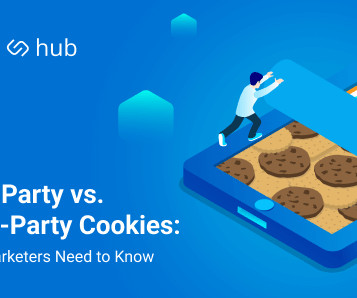First-Party vs. Third-Party Cookies: What Marketers Need to Know
Smart-Hub
APRIL 1, 2024
Both first-party and third-party cookies are used for tracking user behavior on the Internet and allow for refining advertising strategies and delivering a more personalized user experience. In this guide, we will explain the difference between first-party and third-party cookies, explore relevant regulations, and more.











Let's personalize your content